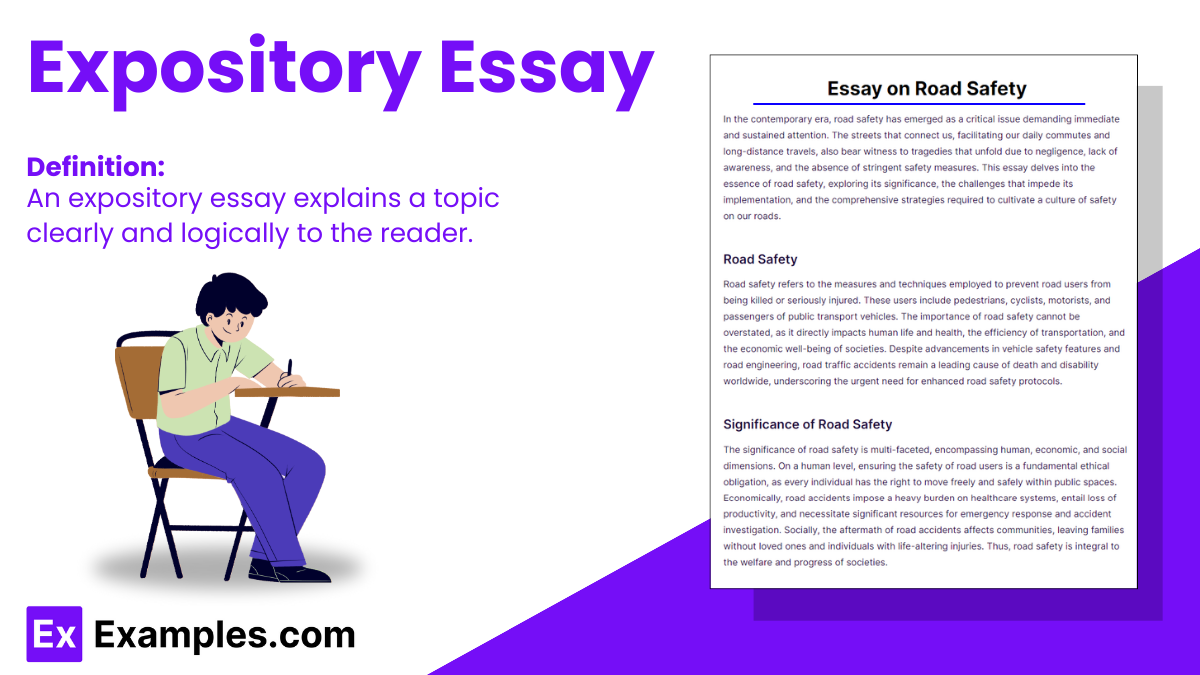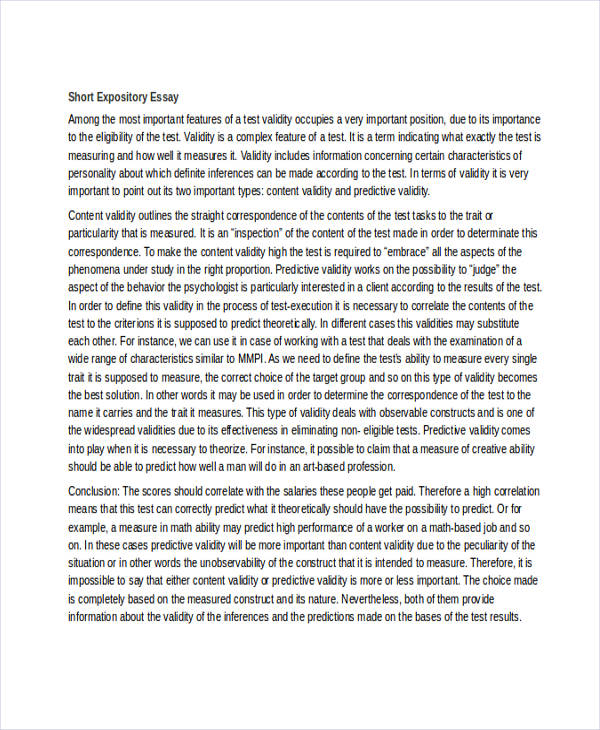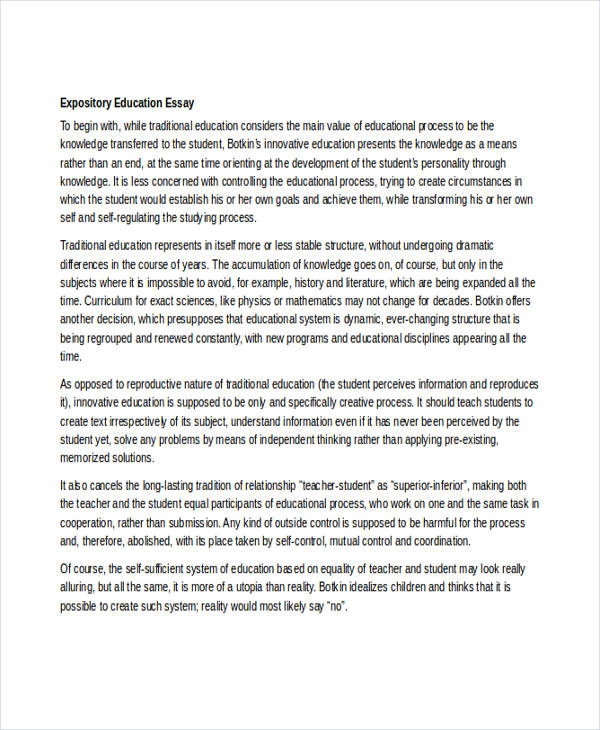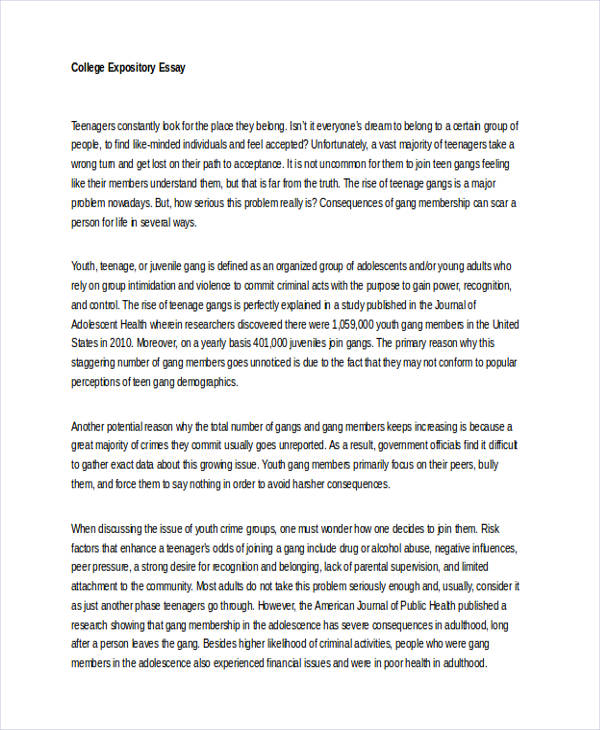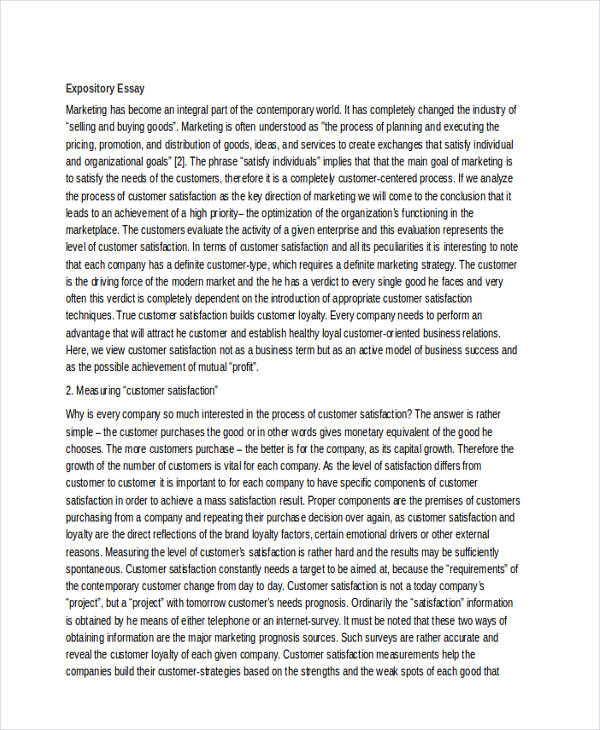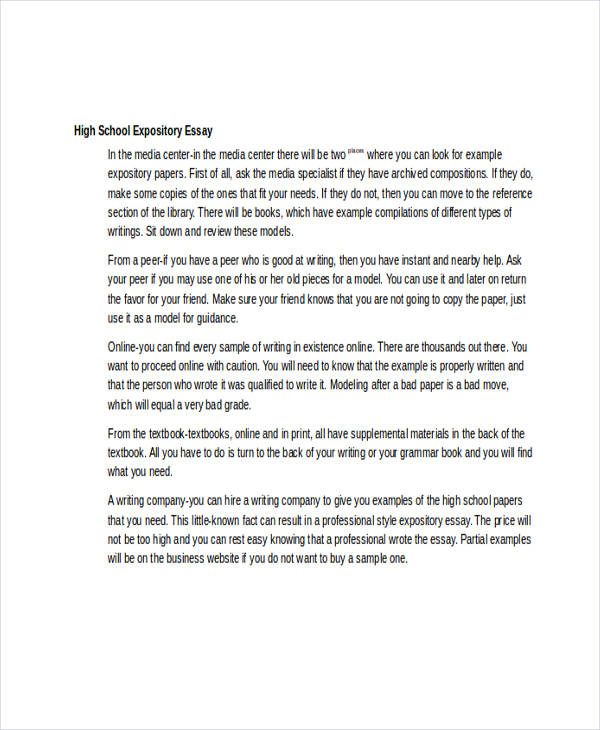20+ Expository Essay Examples to Download
An expository essay is a quintessential part of academic writing that delves into explaining or clarifying a topic in a comprehensive manner. This type of essay requires the writer to investigate an idea, evaluate evidence, expound on the idea, and set forth an argument concerning that idea in a clear and concise manner. Discovering exemplary essay examples can greatly enhance understanding and mastery of this style. Here, we provide a complete guide with examples to empower students and educators in crafting effective expository essays
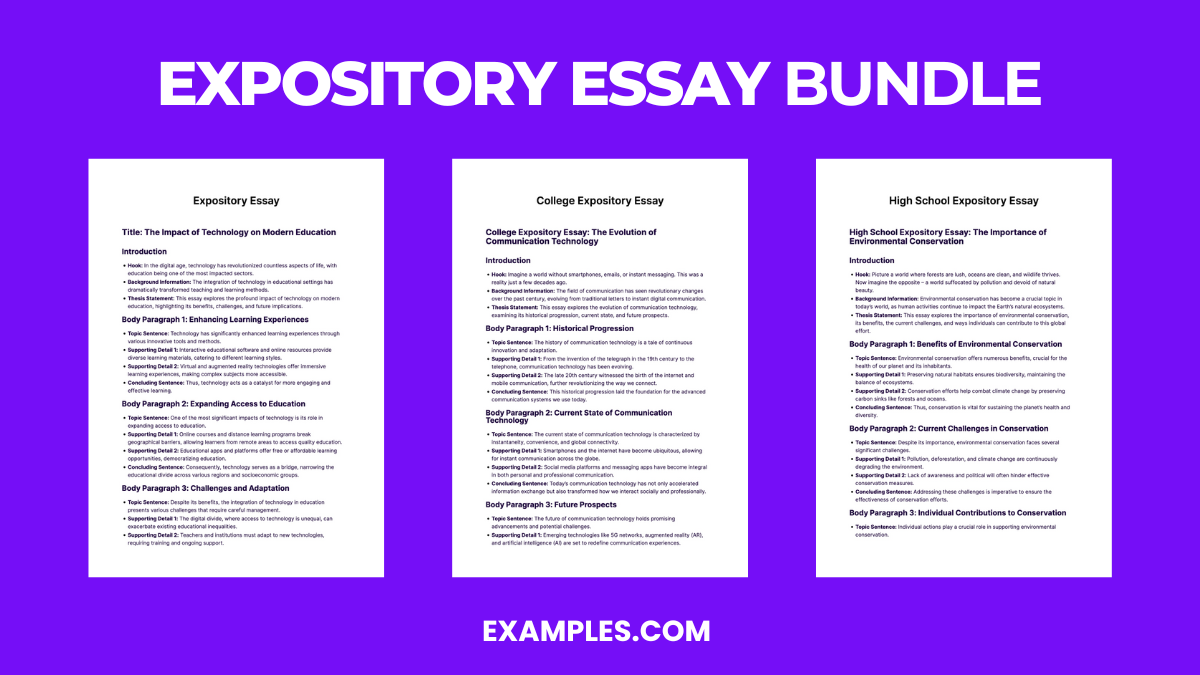
Download Expository Essay Bundle
In school, it is an unavoidable truth that you will be asked to write something about a topic which sometimes you are so eager to finish. There are also times when you feel like you do not want to write anything at all. Well, that is just normal. We all go through those times.One of the things that we do in school is essay writing. As we all know, it is never an easy job to write especially college essays. However, having the right disposition and enthusiasm makes it all so easy. By the time you start to write, all those ideas keep coming and you wouldn’t realize you’re already done.
What is an expository essay?
An expository essay is a genre of writing that investigates an idea, evaluates evidence, expounds on the idea, and sets forth an argument concerning that idea in a clear and concise manner. This type of essay requires the writer to define a topic, use examples, statistics, and facts to explain it to the reader. Expository essays are factual and devoid of the writer’s opinions, focusing instead on delivering straightforward information and analysis on a subject. Their primary purpose is to educate or explain, providing a comprehensive understanding of the topic to the reader.
Structure of an Expository Essay
It typically consists of five paragraphs, but the length can vary depending on the depth of the topic. Here’s a breakdown of the traditional structure:
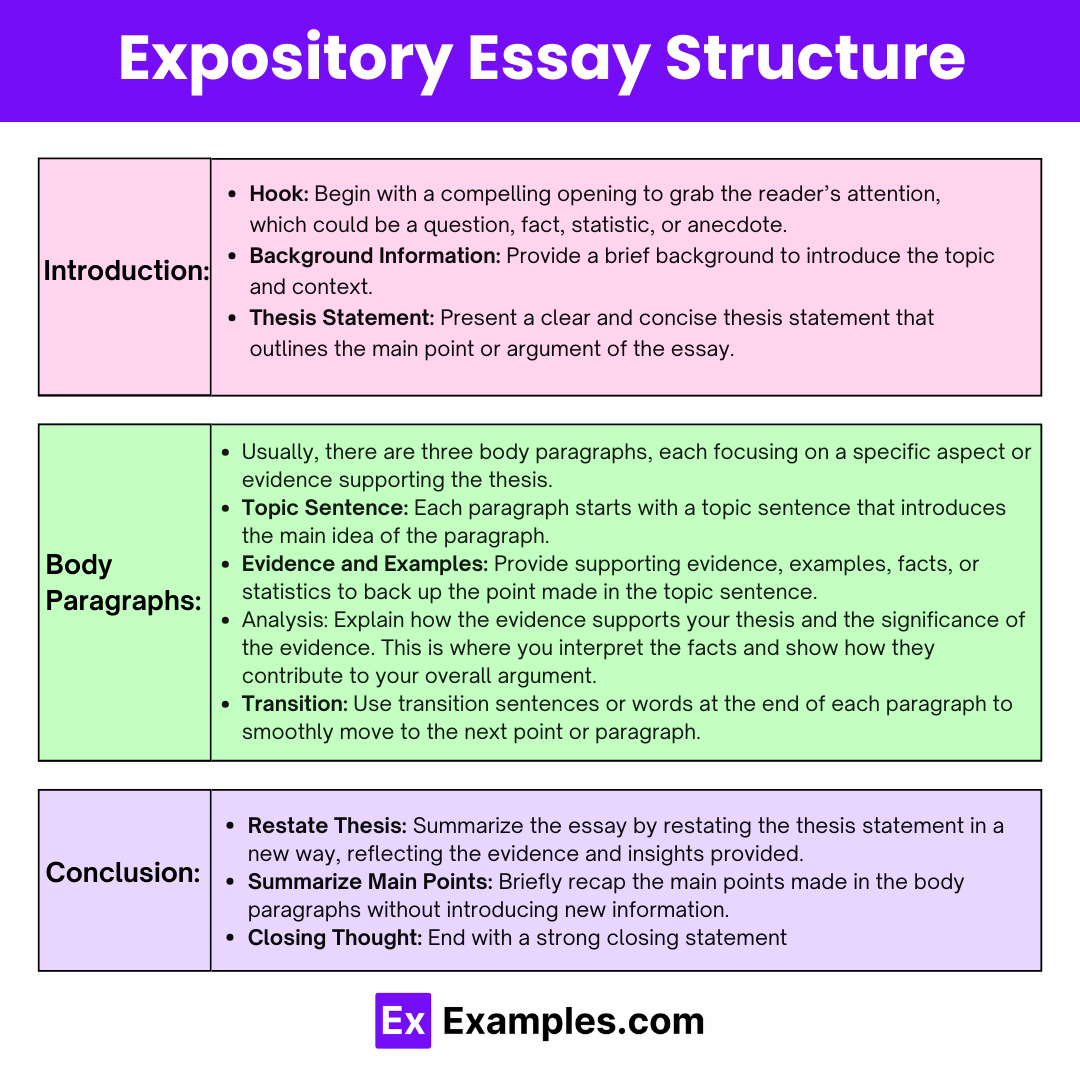
Introduction:
- Hook: Begin with a compelling opening to grab the reader’s attention, which could be a question, fact, statistic, or anecdote.
- Background Information: Provide a brief background to introduce the topic and context.
- Thesis Statement: Present a clear and concise thesis statement that outlines the main point or argument of the essay.
Body Paragraphs:
- Usually, there are three body paragraphs, each focusing on a specific aspect or evidence supporting the thesis.
- Topic Sentence: Each paragraph starts with a topic sentence that introduces the main idea of the paragraph.
- Evidence and Examples: Provide supporting evidence, examples, facts, or statistics to back up the point made in the topic sentence.
- Analysis: Explain how the evidence supports your thesis and the significance of the evidence. This is where you interpret the facts and show how they contribute to your overall argument.
- Transition: Use transition sentences or words at the end of each paragraph to smoothly move to the next point or paragraph.
Conclusion:
- Restate Thesis: Summarize the essay by restating the thesis statement in a new way, reflecting the evidence and insights provided.
- Summarize Main Points: Briefly recap the main points made in the body paragraphs without introducing new information.
- Closing Thought: End with a strong closing statement that reinforces the importance of the topic or provides a call to action or thought-provoking statement to leave a lasting impression on the reader.
The primary purpose of expository writing is to explain, inform, or describe. It aims to present a balanced and objective explanation of a topic, process, or concept, based on facts without the writer’s personal opinions influencing the content.
- Educate Readers: It provides readers with a thorough understanding of a subject through clear, concise, and informative content.
- Clarify Complex Ideas: By breaking down complicated subjects into more manageable parts, it helps readers grasp difficult concepts or processes.
- Enhance Critical Thinking: Encourages readers to think critically about the subject matter as they process the information presented.
- Improve Research Skills: Involves researching and presenting facts, which cultivates research and analytical skills in both the writer and the reader.
- Present Objective Analysis: Offers an unbiased perspective, allowing readers to form their own opinions based on the presented facts.
How Do You Write an Expository Essay
Writing an expository essay involves a clear, focused approach that communicates information to the reader in a concise and effective manner. Follow these steps to write a compelling expository essay:
- Choose a Topic: Select a topic that is interesting, manageable, and relevant to your assignment’s requirements. It should be broad enough to write about but narrow enough to cover comprehensively in your essay.
- Conduct Research: Gather information from credible sources to thoroughly understand your topic. Note down important facts, statistics, and examples that will help you explain your topic clearly.
- Create a Thesis Statement: Develop a clear thesis statement that outlines the main point or argument of your essay. This statement will guide the direction of your essay and inform the reader about your focus.
- Outline Your Essay: Organize your thoughts and research into an outline. Structure your essay into an introduction, body paragraphs, and a conclusion. This will help you maintain a logical flow when writing.
- Write the First Draft: Using your outline as a guide, write the first draft of your essay. Focus on getting your ideas down; you can refine and edit your work in subsequent drafts.
- Revise and Edit: Review your essay for clarity and coherence. Ensure each paragraph effectively supports your thesis and that your argument flows logically. Check for grammatical errors, punctuation, and spelling.
- Ensure that your language is clear, concise, and free of jargon.
- Cite Your Sources: Properly cite all the sources you used to gather information. This will add credibility to your essay and prevent plagiarism.
- Finalize Your Essay: Make any necessary revisions based on your review and feedback from others, if available.Ensure your essay meets the assignment criteria and is polished and professional.
Expository Essay Samples
- Essay on Internet
- Essay on Cyber Crime
- Essay on Road Safety
- Essay on National Disaster
- Essay on Floods
- Essay on Education Rules
- Essay on Politics
- Essay on World War 1
- Essay on Cold war
- Essay on Artificial Intelligence (AI)
Expository Essay Examples
College Expository Essay
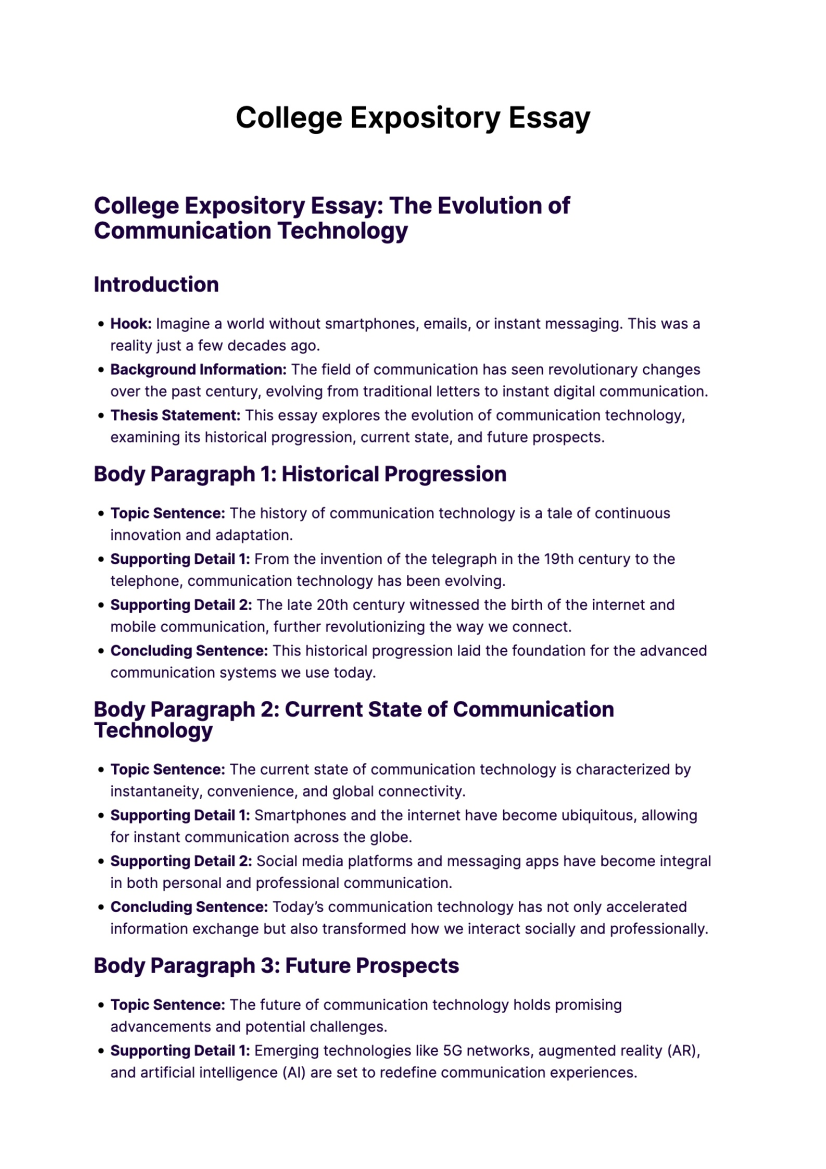
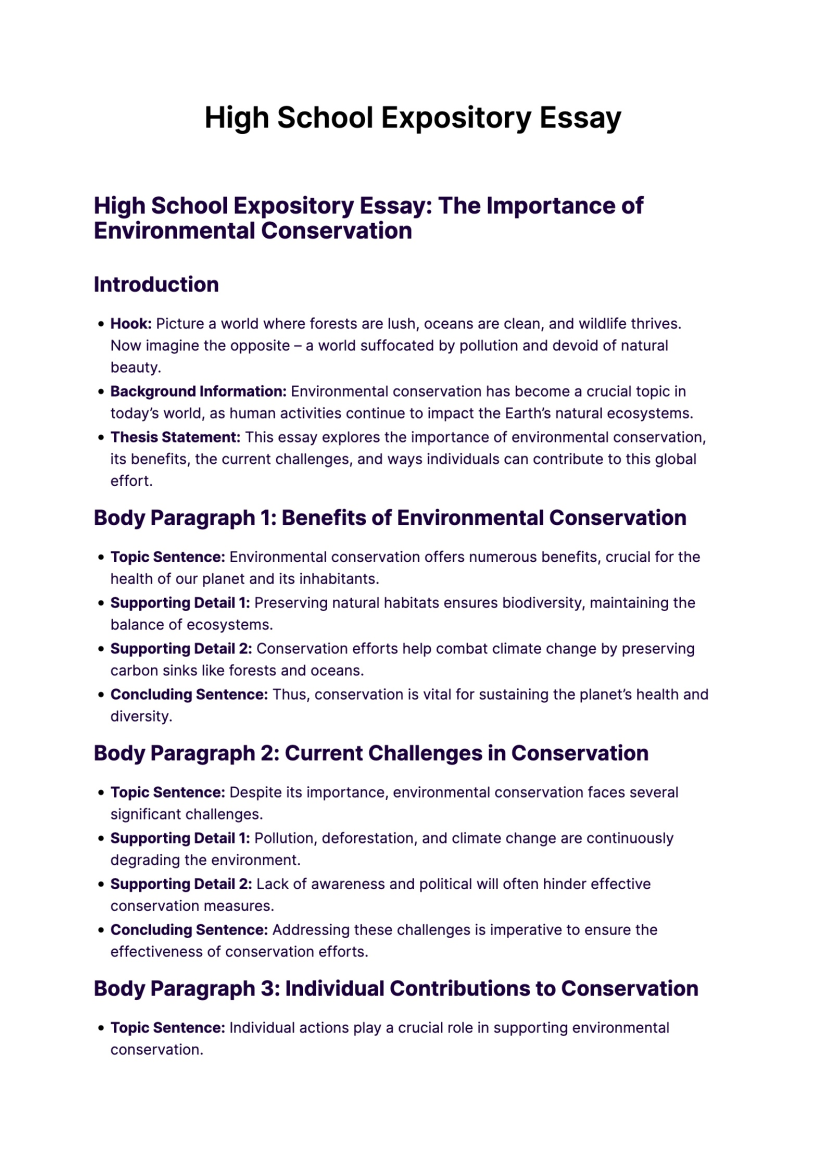
Essay Format
Short Expository Essay
Expository Essay Sample
Expository Education
College Expository
Basic Expository Essay
High School Expository Essay
Types of Expository Essays
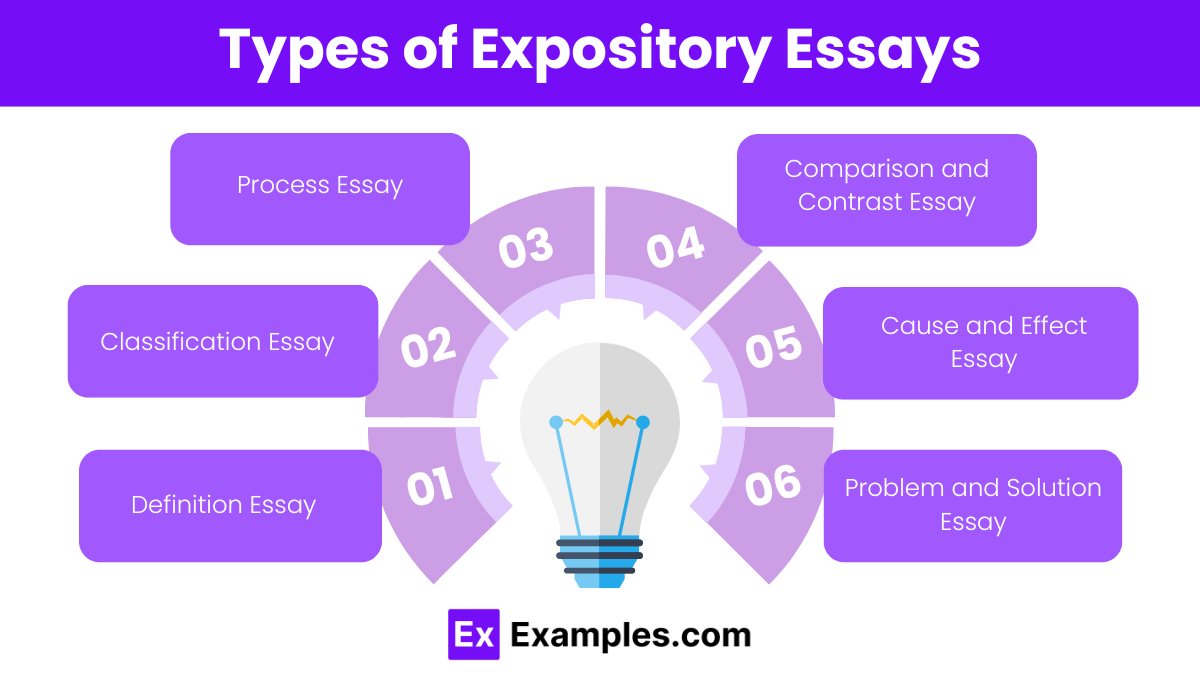
Expository essays are a fundamental aspect of expository writing, encompassing various forms that cater to different academic requirements and personal expressions. Each type serves a unique purpose and requires a specific approach to effectively convey information and ideas.
- Definition Essay This type of essay explores the meaning of a concept or term. It goes beyond the basic dictionary definition, providing deeper insights and personal interpretations. Ideal for exploring abstract concepts, a Definition Essay encourages critical thinking and analytical skills.
- Classification Essay In a Classification Essay, objects or ideas are sorted into categories. This form of essay is particularly useful for organizing complex information into more digestible sections, making it easier for the reader to understand and analyze the topic.
- Process Essay Also known as a “How-To” essay, the Process Essay outlines the steps required to complete a task or procedure. It is sequential and detailed, ensuring the reader can follow along and understand each stage of the process.
- Comparison and Contrast Essay This essay type examines the similarities and differences between two or more subjects. It’s a powerful tool for analysis, helping students develop critical thinking by evaluating various aspects of the subjects being compared.
- Cause and Effect Essay The Cause and Effect Essay delves into the reasons behind a specific event or situation (the cause) and its outcomes (the effect). It’s essential in academic settings for developing a student’s ability to establish logical connections and reason systematically.
- Problem and Solution Essay This essay identifies a problem and proposes one or more solutions. It not only encourages critical thinking but also fosters creativity and problem-solving skills as students explore viable solutions to real-world issues.
Each of these types of expository essays serves as a tool for students and educators to explore and convey complex ideas and information. From high school essays to more advanced academic essays, the ability to effectively write various types of expository essays is a valuable skill in educational development. Whether it’s a personal essay reflecting on individual experiences or a concept essay explaining abstract ideas, mastering these forms equips students with the capability to communicate effectively and think critically
Tips to Write an Expository Essay
- Tips to Write an Expository Essay
- Choose a Topic That Interests You
- Conduct Thorough Research
- Create a Detailed Outline
- Craft a Strong Thesis Statement
- Use Clear and Concise Language
- Incorporate Evidence and Examples
- Analyze the Evidence
- Follow a Logical Structure
- Write in the Third Person
- Keep Your Writing Objective
- Revise for Clarity and Cohesion
- Edit for Grammar and Spelling Mistakes
- Seek Feedback from Peers or Teachers
- Practice Writing Regularly
Guidelines to Write Expository Essay
Some people find expository writing harder than descriptive writing. Probably because it is at times difficult to present an idea and expand it so the readers can get a grasp of it. Here are a few guidelines you can use.
- Do an intensive research. Oftentimes, the problem with expository writers is that they don’t have enough points to present for the idea. Do your research.
- Widen your vocabulary. It is easier to write when you have the right words to use. You don’t have to browse your dictionary from time to time.
- Design a method. Be a little creative. There may be some methods that people use to write but it is still better if you have one for your own.
Benefits of Expository Essay
Essay writing provides a lot of benefits to students in the academe. Not only it gives them credits from their teachers, it also boosts their confidence in expressing their ideas.
Expository essays provide a better understanding of a certain topic. We cannot avoid that at times, there are things that are presented vaguely making us question what it really means. Expository essay conclusion explains it logically so we can grasp the its true meaning.
Another benefit is expository essays present a fair and balanced analysis of the idea. It eliminates writer’s opinions and emotions just like in a persuasive writing.
When Should You Write an Expository Essay?
- In Academic Assignments: Expository essays are commonly assigned in academic settings to assess students’ understanding and ability to explain complex concepts clearly.
- For Standardized Tests: Many standardized tests include expository writing sections that require candidates to organize and express their thoughts on a given topic.
- When Explaining Processes: Whenever there’s a need to describe how something works or the steps in a process, an expository essay format is ideal for providing clear instructions.
- To Clarify Concepts: Use an expository essay to break down difficult concepts or ideas into understandable parts for educational purposes or to inform a general audience.
- In Professional Settings: Professionals might write expository essays in the form of reports, manuals, or proposals to convey information or explain procedures within a company.
FAQs
What are the key elements of an expository essay?
The main elements include an introduction with a clear thesis, body paragraphs with supporting evidence, and a conclusion that summarizes key points.
What are some common types of expository essays?
Common types include compare and contrast, cause and effect, problem and solution, process analysis, and definition essays.
How is an expository essay different from a persuasive essay?
An expository essay presents facts and explanations objectively, while a persuasive essay aims to convince the reader using arguments and opinions.
What is the best way to structure an expository essay?
Use a five-paragraph format: Introduction (with thesis statement), three body paragraphs (each explaining a main point), and a conclusion (summarizing the essay).


